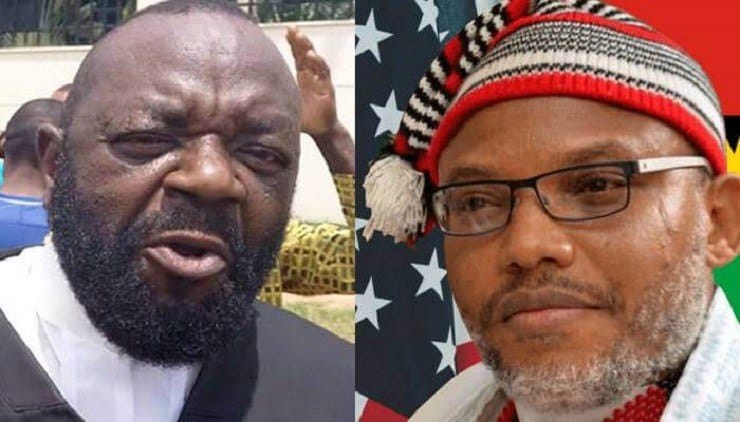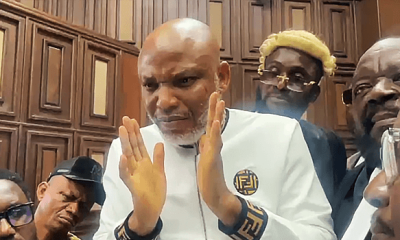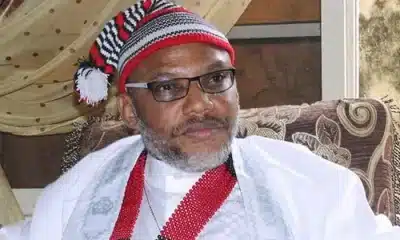Nigeria News
Nnamdi Kanu Was Nearly Killed, Disappeared, Exiled For Charges That Were Later Dropped – Ejimakor

Aloy Ejimakor, counsel of the leader of the Indigenous People of Biafra (IPOB), Mazi Nnamdi Kanu has stated that there is a treasonable felony against the agitator.
He disclosed this via a release made available to Naija News.
The lawyer, however, clarified that the federal government, from 2015 to late 2021, preferred two treasonable felony charges against Kanu.
According to him, “However, even as he was renditioned for the treasonable felony offences, both charges were dropped by the federal government after Kanu’s rendition from Kenya. Another charge that was dropped was the misdemeanor having to do with the defamation of former President Buhari.
“Thus, from 2015 to 2021, Kanu was arrested, detained, charged, prosecuted, nearly killed (in Python Dance), exiled, disappeared and infamously renditioned for charges that were all later dropped or withdrawn.”
He explained that Kanu currently faces charges related to broadcasts alleged to have been made in furtherance of terrorism.
“This does not mean the same thing as Kanu personally committing any physical terrorist act, as aspects of the media often mistakenly suggest.
“This is not semantics, as the mere uttering of words or making a broadcast is, at law, markedly different from committing an overt physical act.
“Suffice it to say that this is one of the obscurations that will as yet create profound complications as Kanu hankers down to defend himself against charges that carry the death penalty,” he added.
He stated further that the declaration of IPOB as a terrorist group by the Buhari administration in 2017 was not driven by any evident act of terrorism but by “a discriminatory tendency which was later declared unconstitutional in a landmark judgment by the High Court of Enugu State in October 2023”.
Ejimakor continued, “It was therefore expected that the present government – being more committed to the rule of law as it were – would have, pursuant to this judgment, taken administrative measures to formally de-proscribe IPOB on its own volition.”










